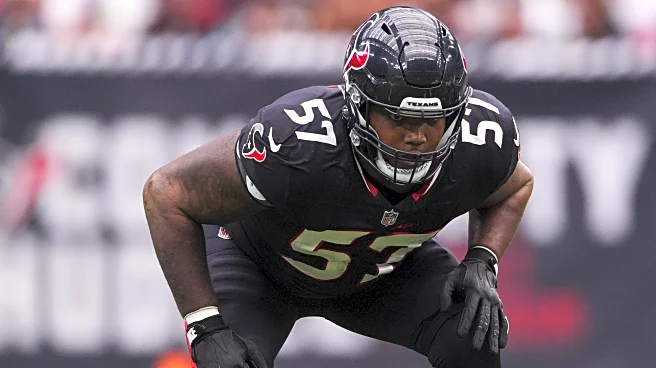What's Happening?
Erin Jackson, an Olympic gold medalist in speed skating, is challenging the conventional beauty standards faced by female athletes. Jackson, who manages eczema, a chronic skin condition, has been vocal
about the physical and emotional challenges it presents. Eczema, characterized by itchy, inflamed, and dry skin, affects a significant portion of adults, with higher prevalence among Black Americans. Despite the visibility of her condition, Jackson has learned to care for her body more intentionally, gaining resilience and control both on and off the ice. Her openness about eczema aims to reduce stigma and support others facing similar challenges.
Why It's Important?
Jackson's story highlights the broader issue of unrealistic beauty standards imposed on female athletes, particularly Black women. These standards often demand physical perfection, which can be detrimental to athletes' mental health and self-esteem. By speaking out, Jackson is advocating for a more inclusive understanding of beauty and athleticism, encouraging others to embrace their unique challenges. Her efforts contribute to a shift in societal perceptions, promoting acceptance and support for individuals with visible conditions. This can lead to increased awareness and better representation of diverse experiences in sports and beyond.
What's Next?
Jackson's advocacy may inspire other athletes to share their personal challenges, fostering a more supportive environment in sports. As she continues to compete, her story could influence sports organizations to address beauty standards and provide better support for athletes with chronic conditions. Additionally, Jackson's partnership with healthcare providers may lead to improved treatment options and awareness campaigns for eczema. Her ongoing dialogue with the public could encourage more inclusive policies and practices within the sports industry, benefiting future generations of athletes.
Beyond the Headlines
Jackson's experience underscores the intersection of race, gender, and health in sports. Her visibility as a Black female athlete managing a chronic condition challenges stereotypes and highlights the need for diverse representation. This can lead to broader discussions on equity in sports, including fair compensation and respectability politics. Jackson's journey also emphasizes the importance of mental resilience and self-care, offering valuable lessons for athletes and non-athletes alike. Her story may inspire cultural shifts towards greater acceptance of imperfections and a more holistic view of beauty.











